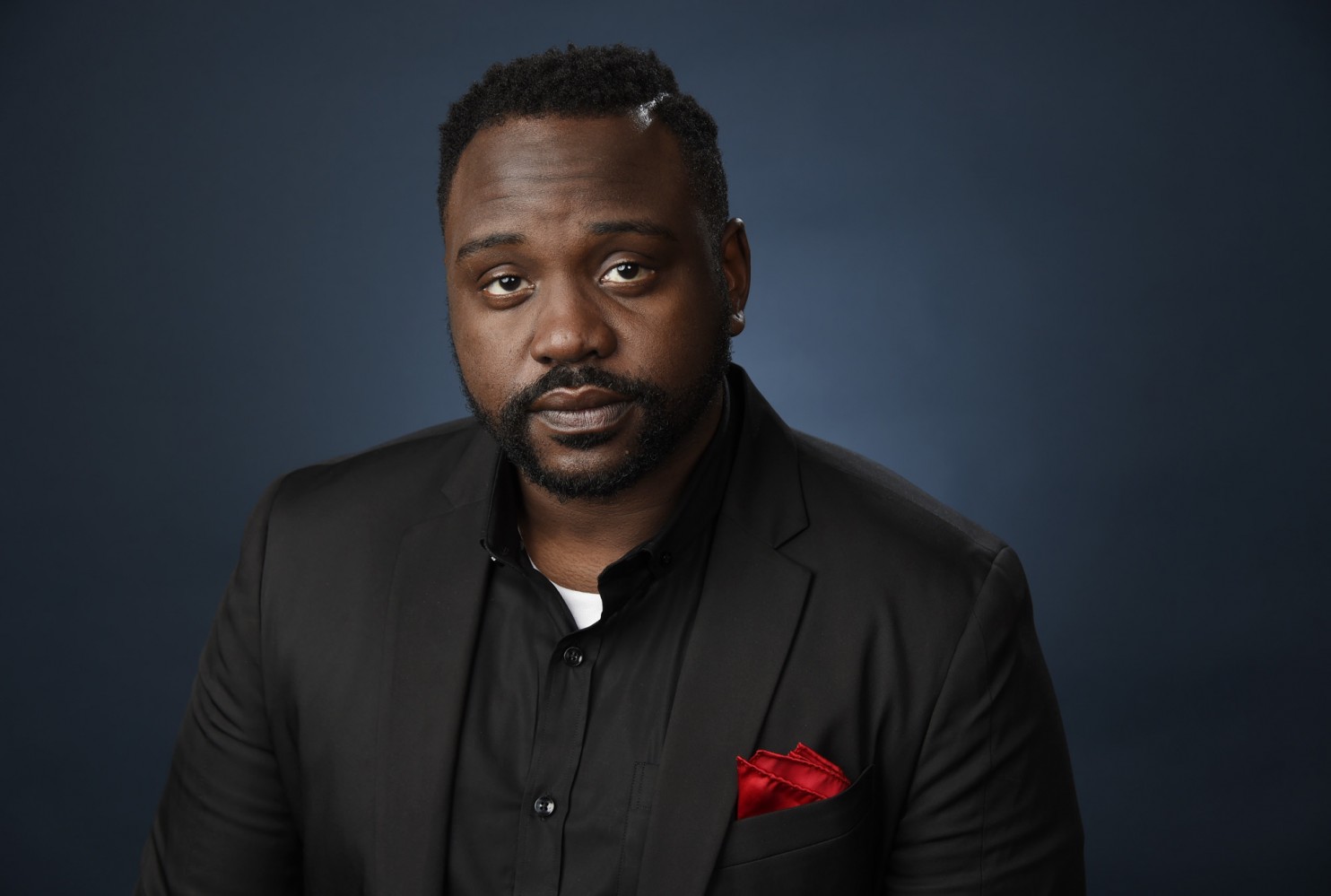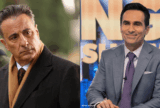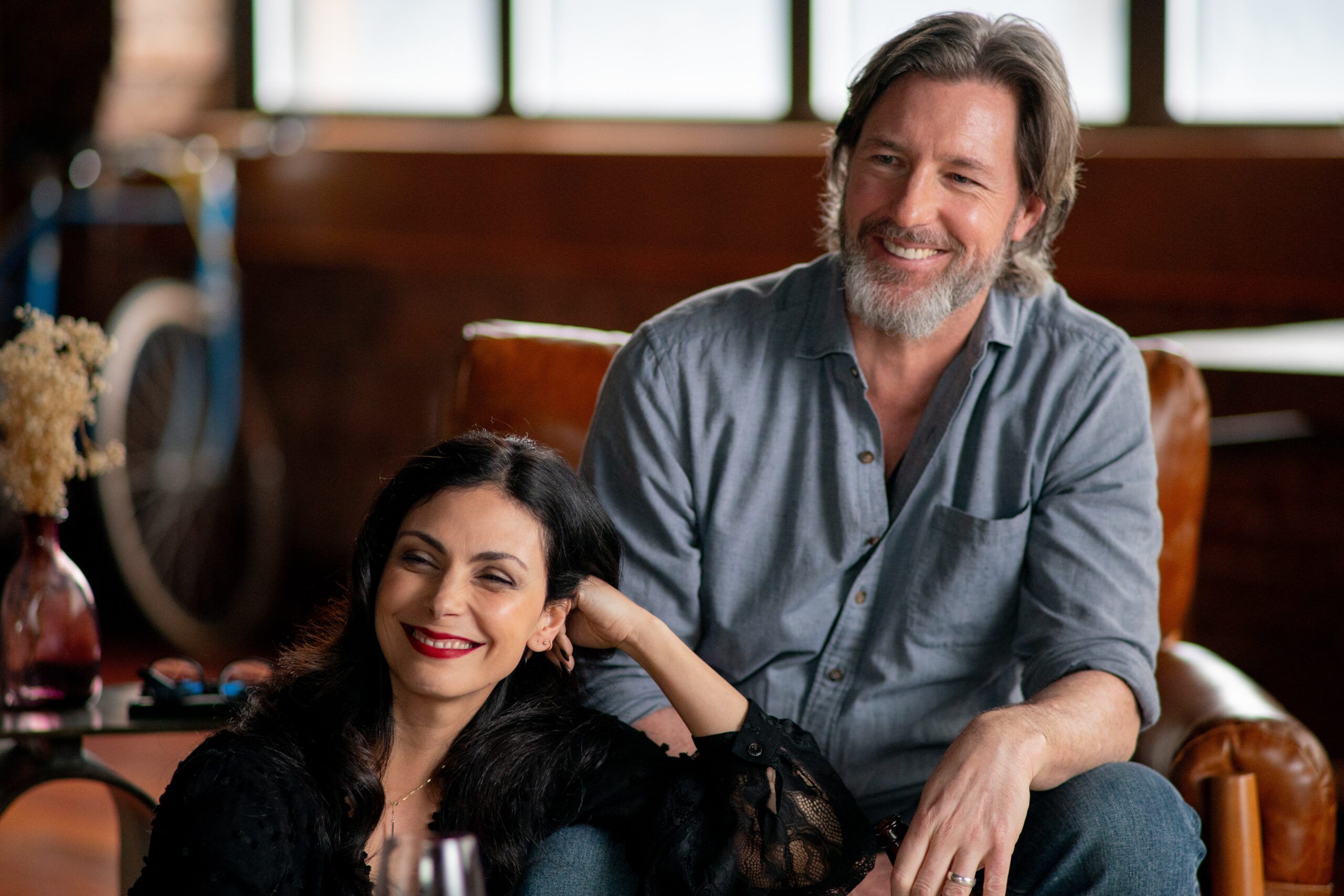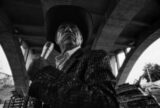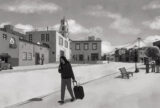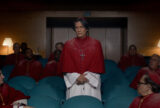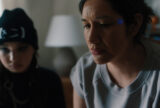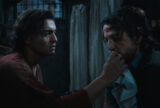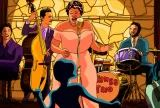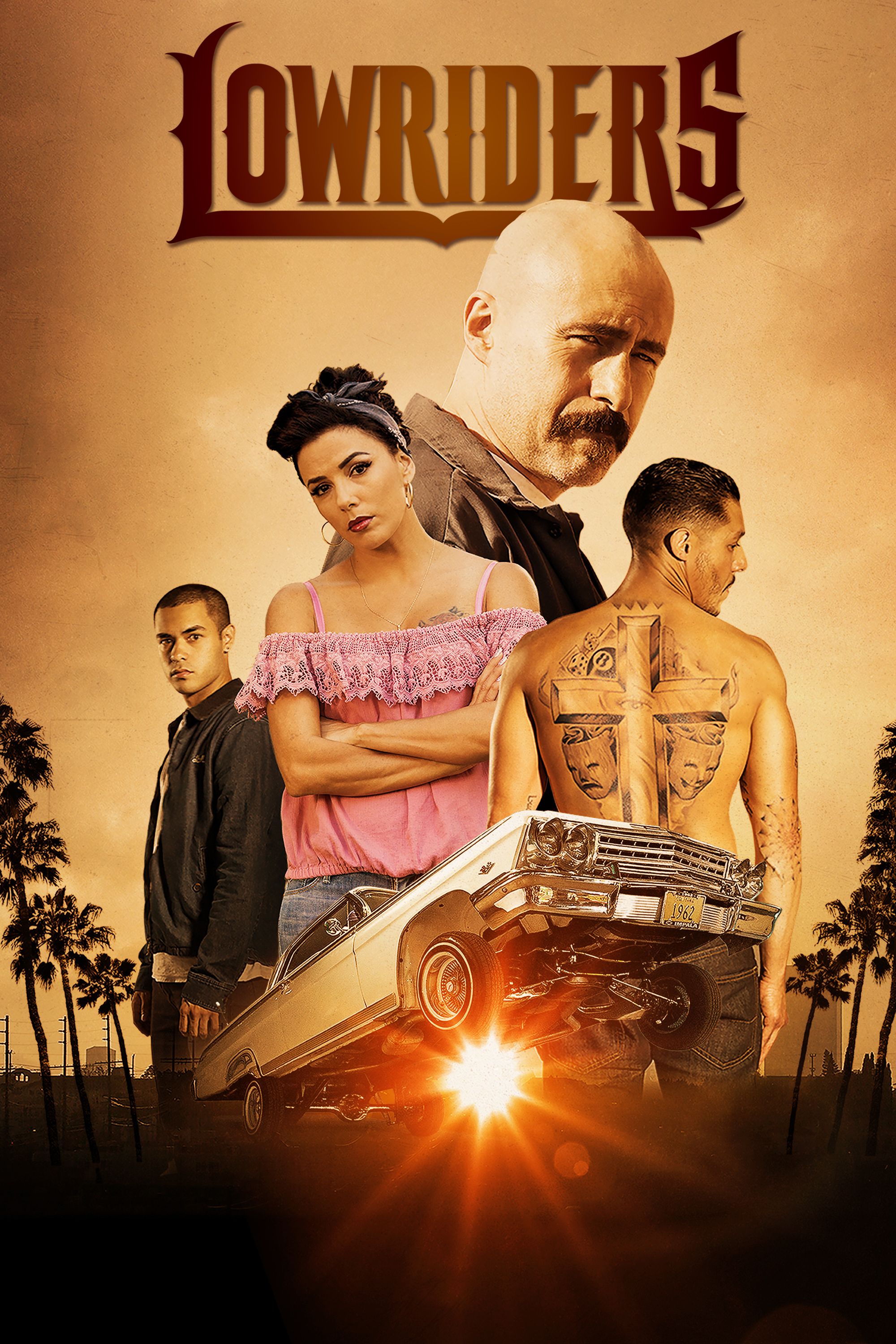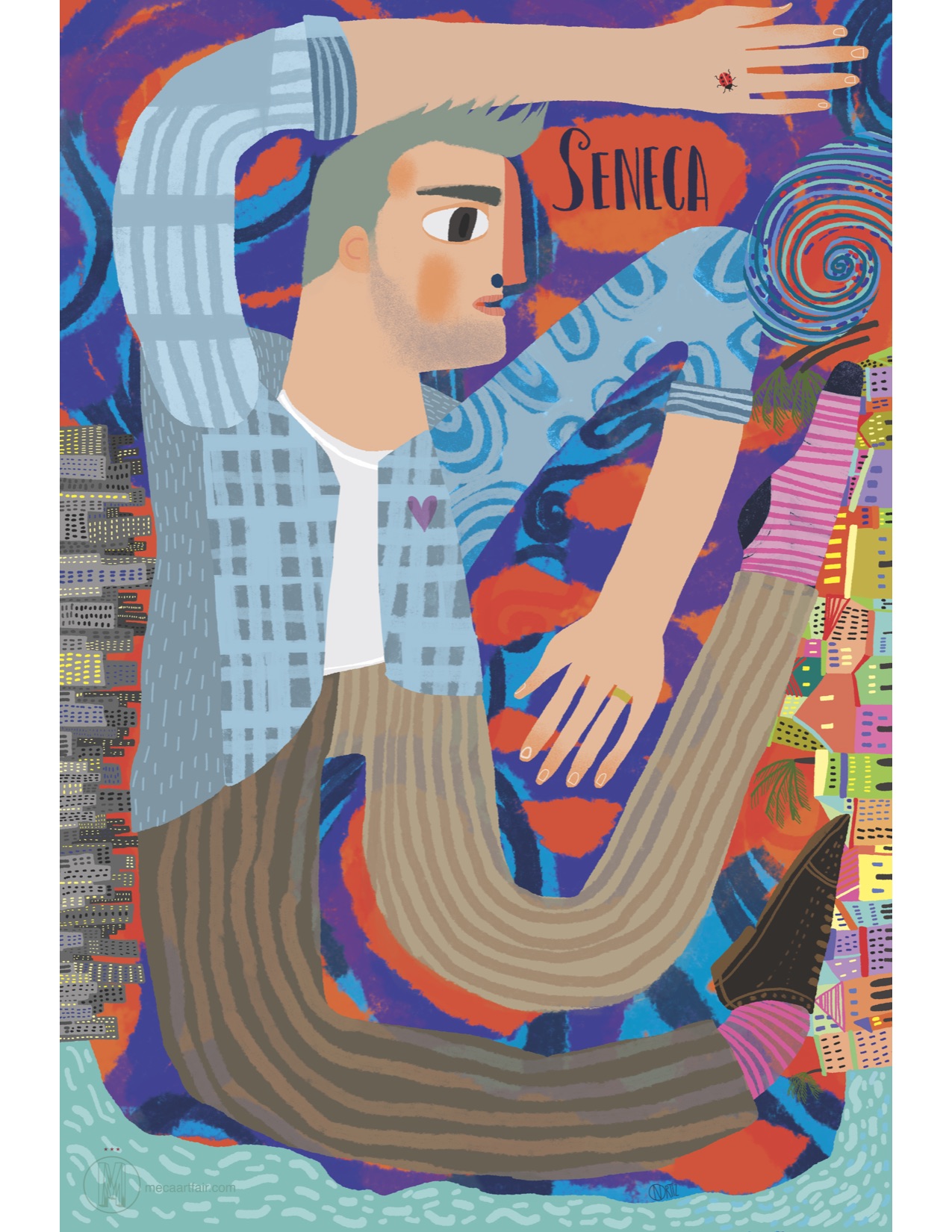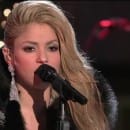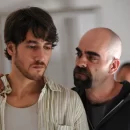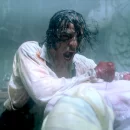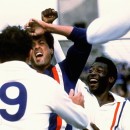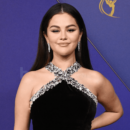10.31.2016 | By Jack Rico |
On the tenth episode of my Highly Relevant podcast, I had a chance to chat with Brian Tyree Henry, a.k.a. Paper Boi on FX’s Atlanta. We spoke mainly about diversity in the arts, but we did get to the nitty gritty on the prolific usage as of late of the word ‘nigga” in television and film (music has been like that from the beginning). Aren’t we trying to eliminate the word from our vocabulary? We also conversed on his pal Donald Glover’s casting in the new Star Wars movie, his first encounter with him, his character Paper Boi, the show’s appeal, his view on Latino culture, Broadway’s lack of minority storytelling, and why Gina Rodriguez is so hot to him. Read on or listen to the interview!
Jack Rico: All right. So, let’s talk. One of the most important things right now is, what were your thoughts when you first heard that Donald Glover was cast as Lando Calrissian in the new untitled Han Solo project?
Brian Tyree Henry: I screamed. I cried. Painting in a dark corner because I couldn’t believe it. I was absolutely just ecstatic.
Jack: When did you first meet Glover, and what were your initial impressions of him?
Brian: The first time I met him, actually, was for my test, so I did an audition, and they called me straight to test. Then they mentioned, they mentioned, “Oh, by the way, Donald will be there”, and I’m like, “Gambino?” Like, “The Glover? Are you sure?” Like, “are we not Skyping? He’s going to be in the room? OK, no pressure whatsoever”. I decided to kind of like dress as the character. I rarely try to do that, because I don’t want so seem like I’m trying to force myself, but I really wanted to play Alfred, so, I dressed in a black Polo, I had a chain on and some camouflage pants which you see me wearing, which I don’t want to do, which is hilarious – oh, it made it in.
Jack: Inside wink.
Brian: We sat next to each other. Yeah, we sat next to each other and I did the scenes with him, but then we were able to ad lib a little bit. We just hit it off, man, I truly love this man. He really feels like he’s more than a cousin, he’s just like a brother to me. It was great to just be in the room and to play with him. If you get to make Gambino laugh, then you know you’re doing something right, you know what I mean? I was like, “as long as I can crack this dude up, then I’ve definitely done something right”. That happened non-stop. It happens to this day. It happened on set all the time. It was beyond amazing to be there with him.
Jack: To a certain extent on the show, you’re representing the image of rappers. What is at the core of Paper Boi? What does he stand for?
Brian: He stands for family and he stands for friendship, man, and he really stands for just having a big heart. I really feel like it would be so easy to look at Paper Boi and already kind of make him this kind of thug, or make him hard, or make him seem like he’s uneducated. I was like, “that is definitely not who he is”. He just mentioned wanting to finish the movie Amadeus. He mentioned Ansel Adams. He’s hella cultured. He knows what it is, and he also has the duality of that because he also is from Atlanta and happens to be a part of the streets, you know what I mean, but he doesn’t want the streets to be all of who he is. I really feel like that’s the truth of most rappers. You come into the game with what you’ve been through, and where you’ve been, but that doesn’t necessarily mean that’s where you want to stay. I feel like it’s important that people know that Paper Boi has goals, and he has dreams, and he really just wants to have a good time. At the same time, though, there is also that flip side where he can be incredibly petty.
Jack: That’s the charm about him though.
Brian: That’s the thing, right? He’s going to stand up for himself, but he knows about having a good time. Since his cousin thrust him into the limelight, that he really wasn’t asking for, what better way to finesse it than by staying as true to himself as he possibly can. He’s going to want his brown liquor, he’s going to want to get the side that he feels he deserves, since you thrust me into that situation, but I think at the core of who he is, is that he has the biggest heart of anyone. He definitely wants to protect those he really cares about, because, being in the trap game is hard. You lose people every day. There’s gay people who don’t really mean anything to you, so the people that mean anything to him, he really wants to protect and keep.
Jack: I did want to talk to you about the frequent use of the N-word on the show. It’s been happening not only on “Atlanta”, but on shows like Netflix’s Luke Cage, as well. It just seems like everybody is somehow just OK with the term. Quentin Tarantino, for example, was criticized by Spike Lee forever for the overuse of the word in his movies. Shouldn’t the same criticism apply today to anyone using the word in the arts? What do you think is the proper use of the word, and should we be using it?
Brian: You know what’s crazy, is that the n-word is the least thing that I’m afraid of right now, because there’s a lot of terms that are absolutely OK by America’s standards that are actually more harmful, I feel. We’re looking at this Presidential campaign of a person who’s running out and saying whatever they want, and saying it in a way to really criminalize people and make them feel less than who they are. To say that Mexicans are rapists, I mean like, “Wait a minute, what?” It’s okay for that to be put out there, but the n-word is part of our diaspora, you know what I mean? It’s a part of our lives. it’s the way that we talk. We had to take ownership from it, we had to take the ownership back, because sometimes that is just the easiest way or the most familiar way for us to communicate, and I just feel like there should be no excuses of why it is used amongst our community because it is a part of our community. It was put on us as this badge, like this burden to carry around when instead, we can use it in a way to relate to each other and take the power away from it. I feel like, especially in Atlanta, which has its own universe and its own flavor, and its own language, I don’t think there needs to be any excuse for the way we use the n-word.
First of all, Alfred is from the streets, and he is from the trap, but at the same time he can turn his charm on just like that, and use really big words like facetious, and verbose, and he’s educated. I don’t think that that word needs to be a monitor to make people seem like they’re less intelligent or that they’re not of the way of the world, because it’s just a part of our lives. To act like it’s not being used and to act like it’s not something that other people use – listen – I know all hip-hop right now is split in words and words and words, and if it’s a white boy from the suburbs listening to Gucci Mane, he’s going to say the word amongst his friends, and I can’t act like he doesn’t. It’s also not a walk of his life, you know what I mean? I think that that’s the difference. I think the difference is, if you’re not from that walk of life, then you know what the ownership is. You need to understand what the ownership is and why it’s used the way it’s used instead of glamorizing it like, “Well Gucci Mane said it so I can say it”. “Well you’re white from the suburbs, so maybe you shouldn’t say it”.
We just really wanted to make the environment of this world of Atlanta as real as possible, and we would kid ourselves if that wasn’t a part of it. We would kid ourselves if we hid the world from what that is, because that’s not what our show’s aiming to do. Our show is aiming to give you the raw side of this life and these people as much as we possibly can, and trying to find a way to put a spin on it to show you how laughable some of these situations and prejudices that we own and carry are. I feel like that word is also one of them, so we just want to expose that and put it out there, because people know. Everyone knows about it. Everybody knows that Trump has the worst hairpiece but don’t really talk about it, you know what I mean? We just want to keep it real, you know, we just want to keep it real.
Jack: FX’s “Atlanta” is one of the best-reviewed shows on TV this year. What do you think is the specific appeal of the show and why do you think other demographics have connected so much with it?
Brian: I think it’s representation. We’ve gone a long time without having venues to give us the shine that we want, or that we feel like we deserve. It’s very easy to feel that a lot of shows are whitewashed. It’s very easy to feel like, “Well there’s nobody up there that represents me”. I feel like right now we need to flood the market with representations of what this country is. This country isn’t just one-sided. This country has flavors from all over, and we really wanted them to be represented. Like I said, there are Alfreds everywhere. Everyone knows a Alfred. I don’t care what race you are. I don’t care what you believe. I don’t care what religion you are. Everybody’s got an Alfred, all right? I think that the goal of Atlanta was to just really put the scope not just on us as the actors, but as the viewers as well. To turn the lens around on you, while you’re sitting there being like, “Oh my God, I’ve done that”. “Oh my God, I totally know what promoter that’s like that”. “Oh, God I hate shots too”, you know what I mean?
We want to make sure that when you’re sitting in your living room regardless of if you’re in Hawaii or a landlocked state you can go, “Hey wait a minute, I know that dude”. “Hey wait a minute man, I totally get that”. I think that it’s just been a long time that television has had of this explosion of, and I don’t want to just use the word diversity but, it is that, you know, of realizing that there’s not just one way of walk of life. You want to show all of them, and what better place a city to put it in than Atlanta, you know?
Jack: What is your relationship with Latino pop culture? I’m Latino myself and so I kind of wanted to know where you think we fit in this cultural moment because there’s such an explosion of black pop culture everywhere. Do you listen to Reggaeton? do you listen to Bachata?
Brian: First of all, I live in Harlem. I live in New York. The Reggaeton is playing on my block all the time.
Jack: You’re right next to Spanish Harlem.
Brian: Yeah man, from the morning until the end. I’m like this is no Black Harlem, there’s no Spanish Harlem, it’s just Harlem, you know. That’s why I like Harlem, because Harlem is the hub of all these different cultures and all these different walks of life that just so happen to be ethnic that actually live together and are thriving together. When it comes to Latino culture and Black culture, I put them hand in hand because, both cultures have endured such discrimination and such, I would like to say, having backs turned to us telling us, “No”. Having our communities taken from us. The great thing I love about Latino and Black culture is that, when you tell us no, then we’ll shift and make a community bigger and better than you ever saw for, where people can always pull up a table to eat, you know. You can pull up a seat to eat at our table, you know what I mean? There’s always room and space for everyone else to thrive and live from our communities because we make it that way. That’s just the way it is. That familial aspect of what Latinos and Black people do in this world. It’s unparalleled, and you can’t have one without the other, you know.
I truly truly truly love Latin art and Latin writers and Latin playwrights, and Latin filmmakers and Latin shows, you know what I mean? I mean, I’m sorry, Gina Rodriguez is the hottest thing in the game right now. Very hot. The hottest thing in the game right now. They are really telling these stories, and all praises to them because, to us, there is no us without each other and I really feel like we represent each other in the best way. We hold each other down. And listen. Black culture and Latino culture is just bomb, OK? It’s just the bomb. It’s just great. Our food. The way we dress. The way we talk. It’s just a certain kind of way we move to this life with our eyes full of wonder and finding a different way to show ourselves off, and show our pride. I’ve never seen any pride ever in my life bigger and better than that of Latinos and Blacks. I just haven’t seen it. We’re in a world that wants to tell us that we can’t be prideful. I don’t know what that’s about. They don’t want us to shine out here. I don’t know why. I don’t know why, but you know it’s just a great thing to see this happening for us, because it’s for us and by us and we try to give it to the masses, that’s what we do, you know. If you don’t want to know it’s because you don’t want to know.
Jack: Right now pop culture is Black culture from film to music, to TV, and sports. In your opinion, what triggered this current explosion?
Brian: I think at this point it was a necessity because we are living in a time that is not much different from a few decades ago, and not much different than a century before that. When the people have had enough, the people have had enough, and we decided that we had enough. If you’re not going to give it to us we’re going to go grab it, how about that? Like how about we colonize this, you know what I mean? How about we go and really make something that will reach the people that we really really know need to hear their own voices reflected back to them, you know what I mean? We really want to provide a place, not even a safe house, we want to provide a place that isn’t looked at as provocative and exotic. It should be the norm, because we are the norm. That’s what America is. It’s why we’re here. This is our country too.
We really want it to reflect all sides of our country. I feel like Atlanta is really speaking out to those. I feel like it bridges that gap between the young Millennials all the way to people who were Baby Boomers. I think that that’s the most important thing, is communication, and to realize the similarities that we all share together, instead of the differences that keep us apart. I feel like Atlanta, and calling it Atlanta in itself, makes that possible because that city does just that, it does just that. Yes, it’s in the Bible Belt. Yes, it’s where Jim Crow happened. Yes, it’s where Civil Rights also happened as well.
There’s a place for everyone there to thrive, and we really just want it to show that that’s what we do as a people. That’s what we do as a community. That’s what we do as a race. That’s what we do as a nation. We like to unite. We want to unite. We want to tell these stories, because our stories are rich. Our stories are bold and vast and go far beyond what our eyes can see, and we just really wanted you to take a piece of that and give it to the public.
Jack: You’re a theater man. I know you studied acting at the Yale School of Drama and had to learn Shakespeare.
Brian: Your Shakespeare, your Ibsen, your Checkov, you know, but at the same time I also wanted to be dive into my August Wilson too, you know? I really wanted to make sure that people knew about James Baldwin. I really wanted to make sure that people knew about Suzan Lori Parks. Stephen Adly Guirgis. All of that. Yale provided a place for us to really go to a tool shed that’s full of tools. Like the Home Depot of tool sheds, you know. You pick and choose which tool you know is right for you as long as you take care of the vessel that’s going to pick the tools. You are your most important thing. You have to go and live life. You have to go and experience life. Can’t nobody do that for you? What Yale provided was just an opportunity to pick which tools works for me, for my tool belt. I will forever be in gratitude to them. I will forever be grateful for what Yale provided for me. You have to learn it all, bro, you have to learn it all. I’m forever grateful to that institution for providing me that place.
Jack: Speaking on theater, why do you think Broadway’s landing so much in the diverse storytelling department?
Brian: Because, you know, we got tired of calling it the Great White Way, dammit. It was time to reflect the people, you know. For a long time, Broadway theatergoers were those that had the money, those that were of a certain class, and those that were considered the most cultured, but that didn’t reflect everybody. That didn’t reflect the real audiences of people in New York. New York is so much more diverse and so much more open to different backgrounds of life. Why are we seeing only one reflection on stage?
Jack: We’ve had “The Color Purple”. We’ve had “Hamilton”. I don’t think it’s enough personally. If we do create stories that are more inclusive and more diverse, do you actually think audiences will pay to see more culturally diverse storytelling on Broadway?
Brian: Listen. Listen to this. I did a show called “The Book of Mormon” by Trey Parker.
Jack: I remember. I was there. I saw you on stage. I have never laughed as hard as I laughed in that show.
Brian: I got to sing a song called “Hasa Diga Eebowai” which translates to “Fuck You God”. Every single night I got to say it. Every single night I got to thrust my hips at this audience, and say “Fuck You God” …
Jack: My mouth jaw dropped open, man when every time you said … I was in shock.
Brian: Yeah, man, and here we are 5 years later and it’s still sold out because the people wanted it. The people needed it. The people needed to know that there I something bigger and better out there for us and that what we believe is okay. What we believe is enough. Yet at the same time, what we believe isn’t enough. It’s us believing together that makes it possible. To stand on that stage and look out into that audience and see somebody who has been going to theater since Carol Channing was onstage, all the way up to kids who had never been to the theater before, laughing together, clapping together, howling and being like, “That’s right. That’s why you do what you do”. That’s why I do what I do because I never in a million years thought that there would ever be a musical like that.
It’s so sad that it’s so ingrained it me to think that it’s not possible, but anything is possible now. Anything is possible now because we’re trying to do it together. That’s the most important part of why our show, I feel, is thriving so much because, you know, regardless of where you come from I feel like you can relate to it. If you can relate to me screaming “Fuck You, God” at you, you definitely can relate to a show about 3 black men in Atlanta.
Jack: Right before I let you go, man, I wanted to do a quick speed round with you to just get a peek at what you’re seeing, what you’re listening to, what you’re downloading…
Brian: Let’s do it, man.
Jack: Favorite late-night show.
Brian: “Full Frontal” with Samantha Bee and the “Daily Show.” I love Trevor Noah, man. And Trevor Noah too, big ups to him. Yeah. Those are my late nights.
Jack: App you can’t live without.
Brian: I’m going to have to go ahead and say Instagram. I’m going to have to say it because that’s where I find all my pens, that’s where I find all my art, that’s where I find really great graffiti art, graphic art. I can’t live without my Instagram, man.
Jack: The funniest person you’ve ever met.
Brian: Donald Glover and Keith Stansfield.
Jack: A movie that changed your life.
Brian: Please don’t judge. The original “A Nightmare on Elm Street”.
Jack: The final one: an album you’d recommend to everyone.
Brian: Michael Jackson’s “Off the Wall”. Without a doubt. It was the first album I ever listened to at the age of 3, At 3 years old I listen to it on vinyl and to this day it still rocks. It still locks it down.

